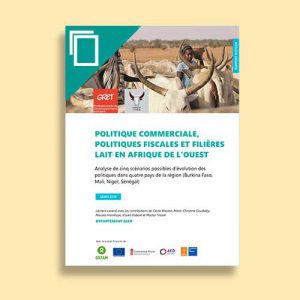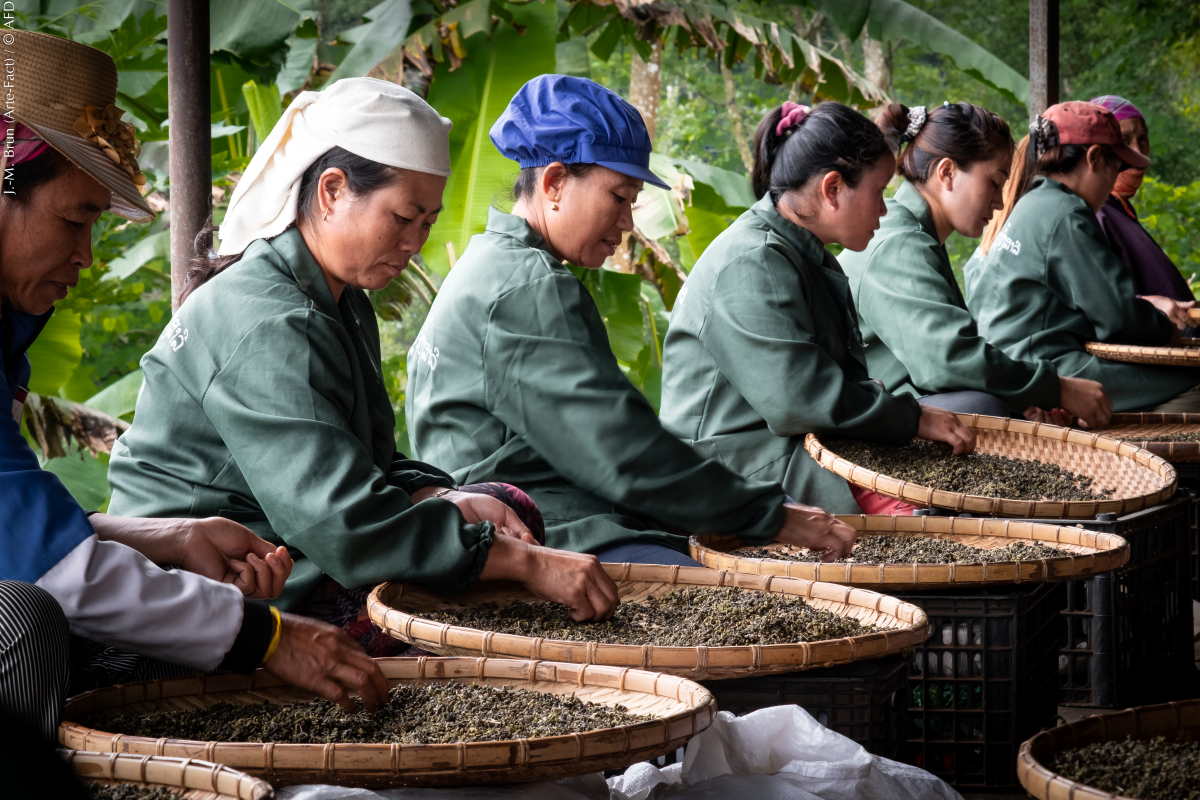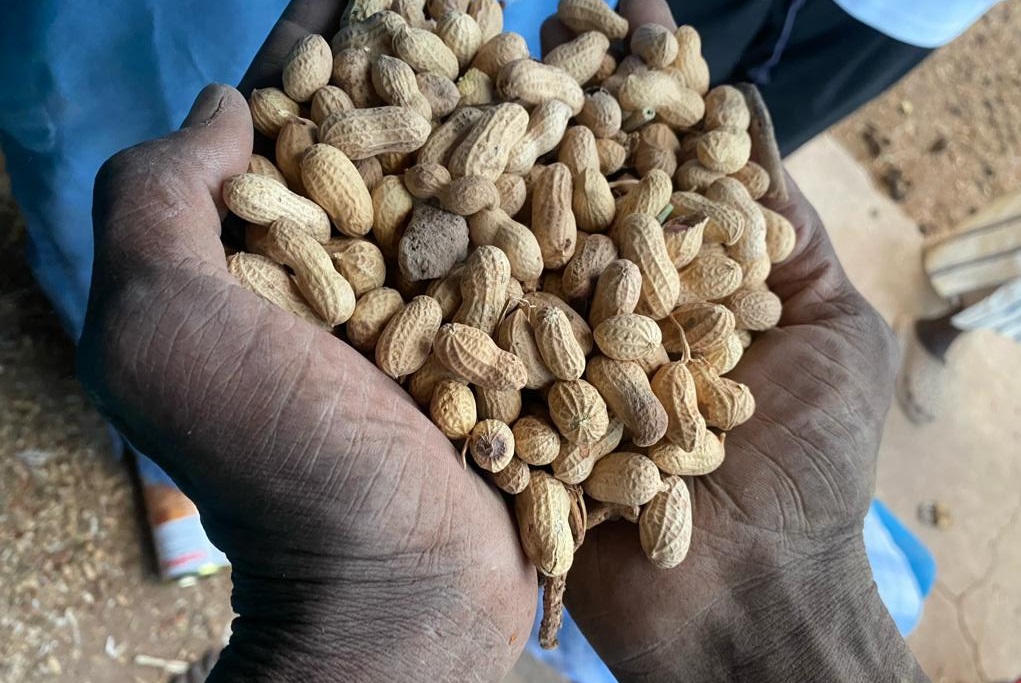As part of the “My milk is local” campaign, aiming to defend and promote local milk in West Africa and in Chad, GRET conducted a study on trade policies, tax policies and milk sectors in the region. This study has just been published.
On 1 June 2018, the “My milk is local” (in french) campaign was launched in several countries in West Africa (Burkina Faso, Mali, Mauritania, Niger, Senegal) and in Chad. An initiative taken by all sorts of organisations (livestock farmers, industrials, inter-professional groups), NGOs and research centres.
The objective is clear: promote local milk in the region, in a context where imports from outside Africa of dairy products and milk-substitute preparations (powdered mixtures of skimmed milk and vegetable fats) are constantly increasing.
Two recommendations made by this study
As part of this campaign, GRET was entrusted with the conduct of a study to evaluate the effects of five scenarios for changing trade policies (such as increasing customs levies or an increase in demand) and tax policies (such as reducing VAT) governing dairy products and milk substitutes. This work was carried out in four countries in the region: Burkina Faso, Mali, Niger and Senegal).
The study made it possible to highlight the advantages and disadvantages of these scenarios, and to identify their feasibility and their fallibility. These analyses were based in particular on interviews with farmers and professionals in the sector, on a study of milk prices and milk substitute prices in the four countries, as well as on economic forecasts using simplified value chain models developed for the occasion.
Ultimately, this study made two specific recommendations to promote the local milk sector in West Africa:
– the necessity for a change in the trade policies of the Economic Community of West African States (ECOWAS), i.e. an increase in the Common External Tariff (CET) of 10 % on powdered whole milk and of 35 % on powdered mixtures of skimmed milk and vegetable fats (compared to 5 % currently);
– a change in taxation, i.e. VAT exemption for products originating in the local milk sector.
Complementary measures
According to the study, implementing these recommendations would make it possible to re-establish the competitiveness of local milk compared to powder imports and to encourage processors to get involved in the development of local milk collection. Currently, local milk is on average 15 % more expensive than powdered whole milk and 75 % more expensive than powdered mixtures of skimmed milk and vegetable fats. This study also stresses that, apart from these measures, other policies to support the local milk sector should also be applied.
This study by GRET served as the basis for drawing up a position brief for the “Mon lait est local” campaign. Recently published, this brief will be used to support various advocacy actions. The results of this work were presented during a debate in Brussels on 9 April last, organised by Oxfam and SOS Faim, two of the campaign partners, with representatives from African farmers’ organisations and the European Commission. It should also be noted that the study will be presented in Dakar on 13 June next, during a seminar on milk in West Africa, organised by Cirad.






